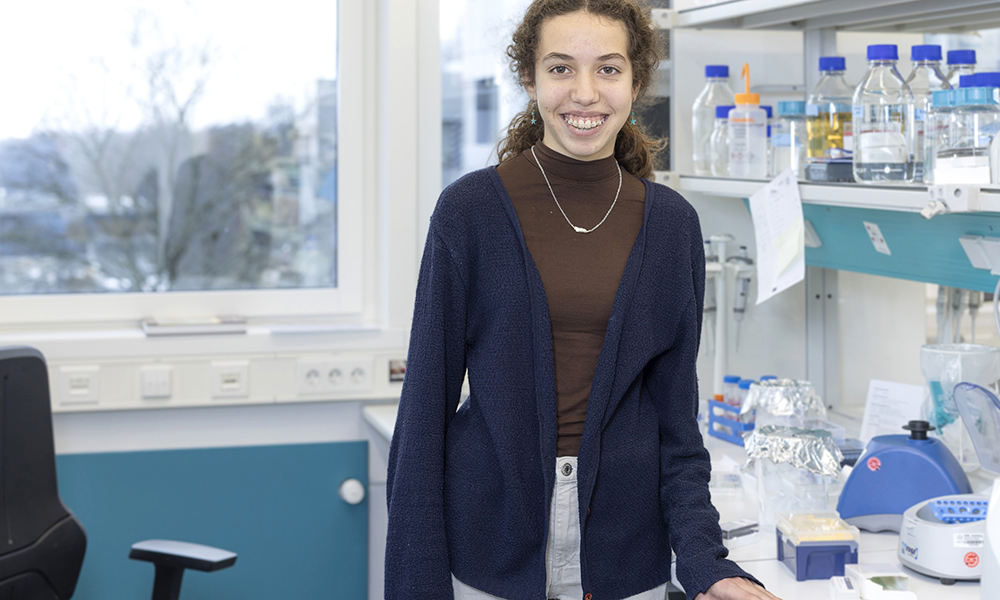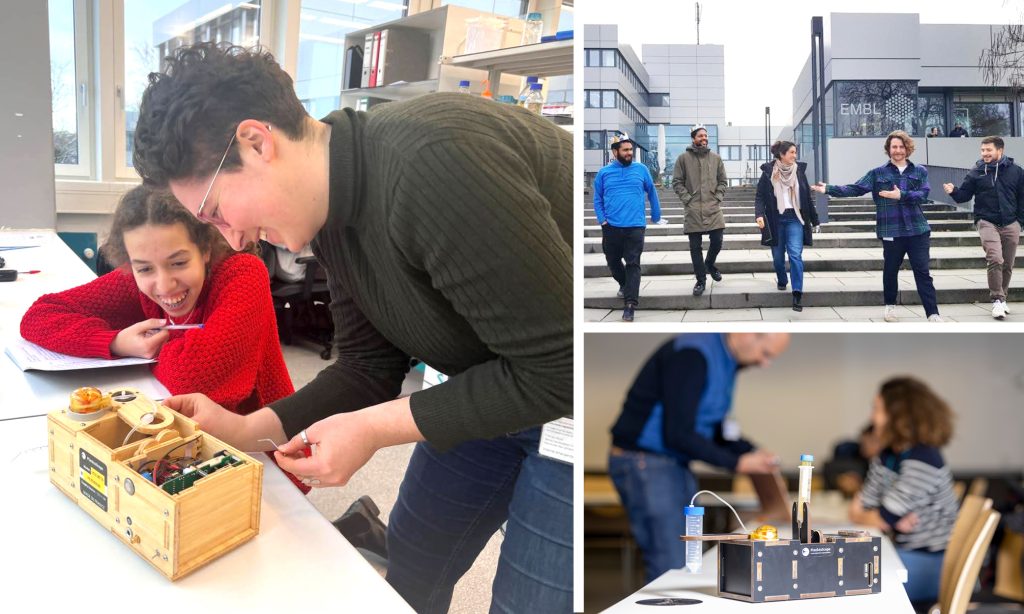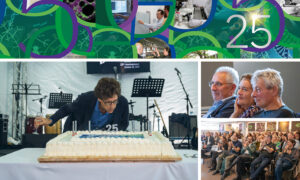
Scientific passion that seeds passion
Celebrating the International Day of Women and Girls in Science through the eyes of a French middle-school student in the Vincent lab who got to dive further into the world of plankton research.

Leila Aghanim-Fouchet can clearly remember when her passion for plankton began. She was seven years old, and a Tara Ocean Foundation scientist spoke at her school in Paris about the impact of climate change on plankton. She was hooked.
Fast forward to eight years later when her school, Collège Sévigné, was requiring students to seek out week-long internships, and she returned to a familiar website: the Tara Ocean Foundation, a frequent EMBL partner. There, she zeroed in on a scientist listed there whose passion for plankton mirrored her own, EMBL Group Leader Flora Vincent. And that is how on a cold January day in Boxberg, Germany, one could find this fledgling scientist at the viewing end of a PlanktoScope, eager to share her thoughts on her short EMBL experience, career aspirations, and why plankton research is so important to her.
“I am very passionate about this,” Aghanim-Fouchet said with clear authority, noting that she fully intends to become an oceanographer, focused on plankton and corals. “I think plankton is at the base of our world, which makes them very important to study.”
And during her week in the Vincent lab, she got to do exactly that. First, she helped build the newest version of the PlanktoScope, a tool designed to be assembled and used by anyone who wants to study plankton. While an errant fan posed some challenges, the whole experience ended up offering Aghanim-Fouchet a glimpse into microscope engineering as she and Vincent addressed a temperature-control issue.
PlanktoScopes are small, frugal, and portable tools, connecting to an online platform through cell phones or tablets so users can view specimens online and also record and share this data. This ‘imaging flow technology’ projects images of plankton and other microscopic sea critters onto a screen as they ‘flow’, and the pared down, yet high-tech tools, recently became available by preorder from the inventor at Fairscope.
The PlanktoScope takes images over a five-minute period, and then the online software can sort the images, allowing them to become part of a very large online database with annotations generated through a variety of connected resources. Consequently, they make good tools for citizen science, field research, and plankton diversity training. In fact, thanks to the Plankton Planet consortium, Vincent will use a PlanktoScope while sampling from shallow waters as part of EMBL’s upcoming TREC expedition.
“It’s not just a good tool to raise awareness and make science accessible through outreach events, but it actually collects good scientific data that we can really use as scientists,” Vincent said. “So, Leila is getting exposed to a lot of things that many scientists don’t even think about – frugal, sustainable tools and expanding the reach and application of these tools.”

But the PlanktoScope was just part of Aghanim-Fouchet’s week-long experience. She also used a confocal microscope to help analyse diatoms, a kind of single-celled phytoplankton. Additionally, she could attend talks, meet other researchers, and get introduced to other model organisms that EMBL developmental biologists use to address a variety of scientific questions.
For Vincent, Aghanim-Fouchet’s request to spend a week learning and observing in her lab struck a familiar chord. She too grew up in France and completed a required internship in a ‘professional context’ at the same age, but at an opera house in Strasbourg where, instead of studying plankton, she was helping build stage sets.
“Since I started doing science, I’ve been somewhat impatient to reach the day where I could offer this kind of experience to some young person in my lab,” Vincent said. “I’ve had my own experiences in other labs, so I was eager to give back. It’s how we inspire and attract others into science.”
“This has been an incredible experience,” Aghanim-Fouchet said. “But I think for young women like myself, it’s especially important to meet successful women in science. I feel even more energised to continue with my studies to become an oceanographer.”


